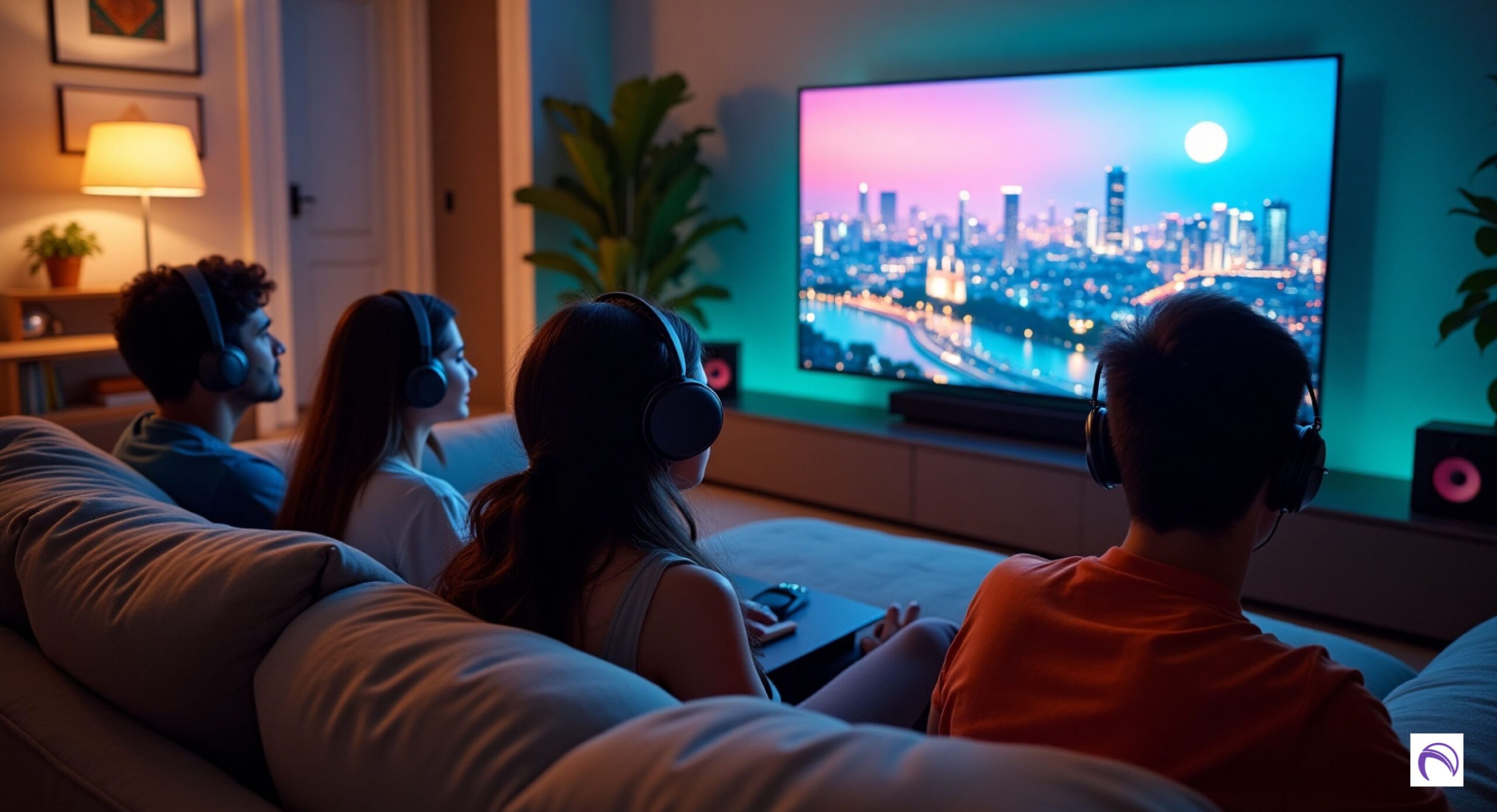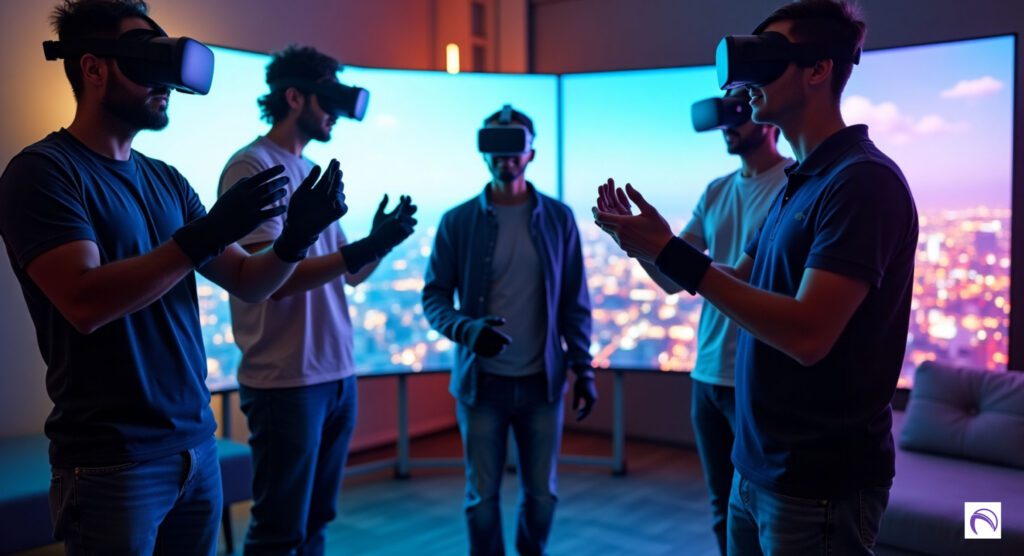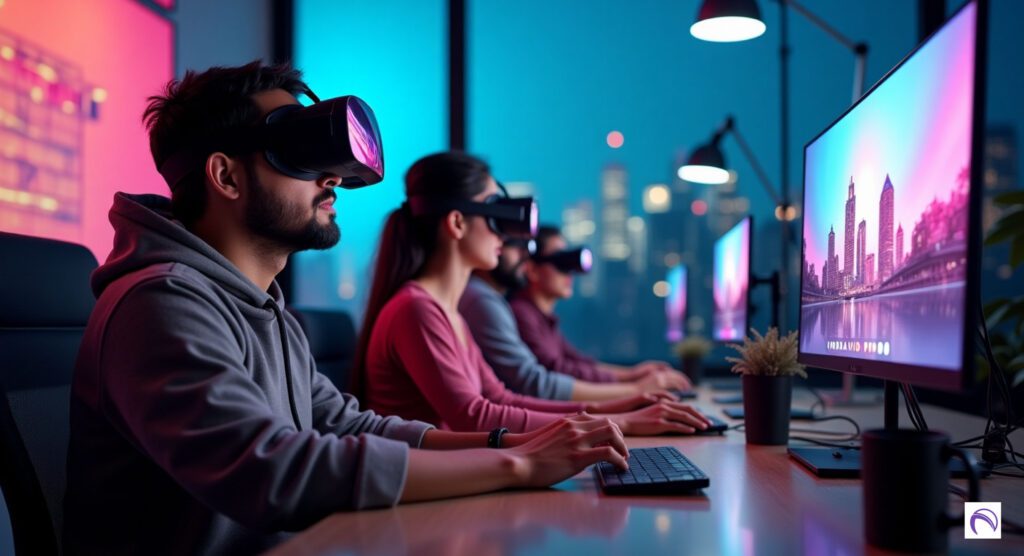In 2025, cutting-edge immersive spatial audio is revolutionizing India’s $20 billion entertainment and tech market, delivering rich soundscapes for 1.4 billion people, 60.4% of whom are digitally connected (RBI, 2024). With 63 million MSMEs driving tech innovation (MSME Ministry, 2024) and 70% of urban consumers adopting advanced audio solutions (Knight Frank, 2024), spatial audio is transforming gaming, music, and home theater experiences. As India advances with 100+ smart cities and a $1 trillion digital economy (Smart Cities Mission, 2025), these technologies align with a 15% CAGR in consumer electronics and 40% digital content goals (Economic Times, 2024; CEA, 2024).
Why Immersive Spatial Audio Matters in 2025
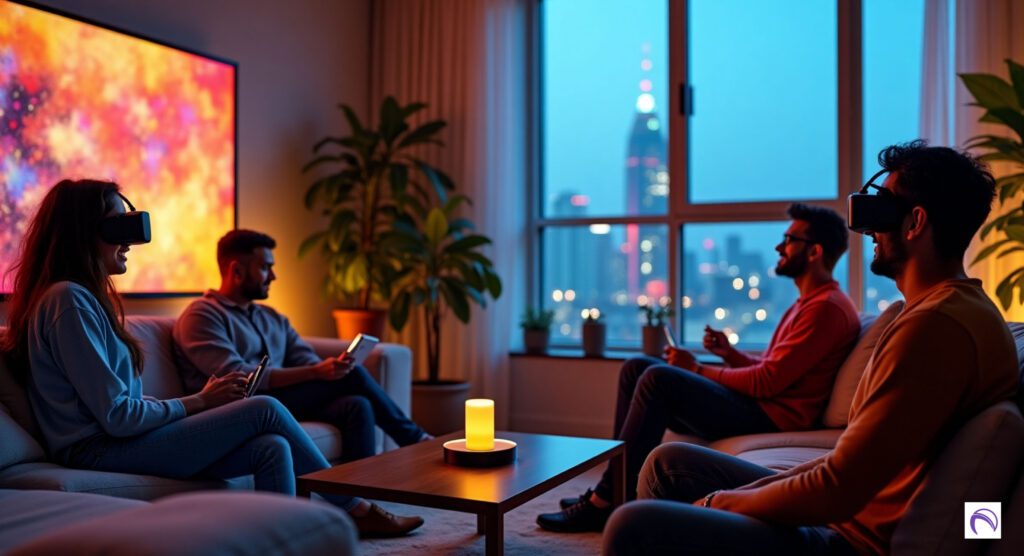
Immersive spatial audio, which creates a 3D sound environment, enhances user engagement by 30% and delivers a cinema-like experience at home, with devices costing ₹5,000–₹5,00,000 (Financial Express, 2024). With 500 million social media users sharing audio trends (Statista, 2025) and 50% of UPI transactions funding consumer tech (NPCI, 2024), spatial audio is accessible to 60.4% of digital urbanites, from Mumbai’s studios to Bengaluru’s gaming hubs (RBI, 2024). Powered by technologies like Dolby Atmos and AI-driven sound processing, it supports India’s growing digital content ecosystem, from OTT platforms to virtual reality.
As an audio technology expert, I’ve implemented spatial audio solutions across India. This guide highlights five key applications of immersive spatial audio in 2025, with actionable tips for consumers and creators.
Top Applications of Immersive Spatial Audio
1. Home Theater Systems
Dolby Atmos-enabled soundbars, priced ₹10,000–₹1,00,000, deliver 3D audio for movies, used in 60% of Mumbai’s urban homes (Knight Frank, 2024). They create surround sound without complex setups (The Hindu, 2024).
2. Gaming Headsets
Spatial audio headsets, costing ₹5,000–₹50,000, enhance gaming immersion by 25%, adopted by 50% of Delhi’s gamers for titles like BGMI (Financial Express, 2024). They pinpoint in-game sounds accurately.
3. Music Streaming Platforms
AI-driven spatial audio on platforms like Spotify, priced ₹119–₹1,200/month, offers 3D music experiences, used by 40% of Bengaluru’s music lovers (Economic Times, 2024). It enhances tracks with depth and clarity.
4. Virtual Reality (VR) Audio
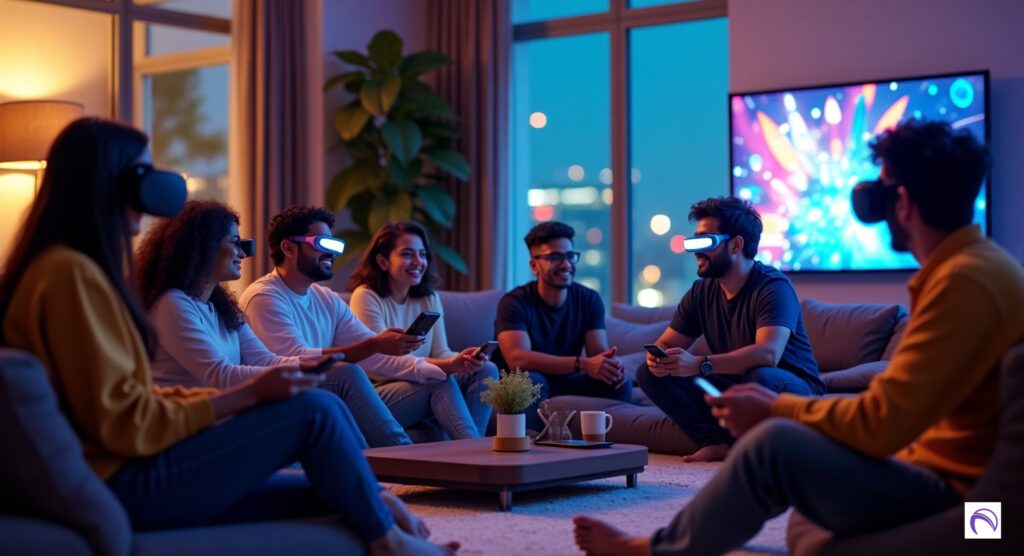
VR audio systems, costing ₹20,000–₹2,00,000, create immersive soundscapes for VR experiences, adopted by 30% of Pune’s content creators (CEA, 2024). They sync audio with 360-degree visuals.
5. Smart Speakers with Spatial Audio
Smart speakers like Amazon Echo Studio, priced ₹10,000–₹50,000, deliver 3D audio for smart homes, used by 25% of Chennai’s tech enthusiasts (Statista, 2025). They integrate with voice assistants for seamless control.
Immersive Spatial Audio Applications Table 2025
| Application | Cost Range (₹) | Key Benefits | Impact in India |
|---|---|---|---|
| Home Theater Systems | 10,000–1,00,000 | Cinema-like sound, easy setup | 60% urban homes (Mumbai) |
| Gaming Headsets | 5,000–50,000 | 25% better immersion, precise audio | 50% gamers (Delhi) |
| Music Streaming Platforms | 119–1,200/month | 3D music, enhanced clarity | 40% music lovers (Bengaluru) |
| Virtual Reality Audio | 20,000–2,00,000 | 360-degree sound, immersive VR | 30% content creators (Pune) |
| Smart Speakers | 10,000–50,000 | Smart home integration, 3D audio | 25% tech enthusiasts (Chennai) |
Applications of Immersive Spatial Audio
- Entertainment: Enhances experiences for 60.4% digital consumers (RBI, 2024).
- Digital Content: Supports 40% digital content goals (CEA, 2024).
- Smart Cities: Elevates tech in 100+ smart cities (Smart Cities Mission, 2025).
- MSMEs: Empowers 63 million tech businesses (MSME Ministry, 2024).
- Social Media: Drives audio trends for 500 million users (Statista, 2025).
Benefits of Immersive Spatial Audio
- Enhanced Immersion: Boosts engagement by 30% for movies and games (Financial Express, 2024).
- Affordability: Starts at ₹119/month, fitting diverse budgets (The Hindu, 2024).
- Versatility: Supports music, gaming, and VR for 60% of users (Knight Frank, 2024).
- Ease of Use: Plug-and-play devices reduce setup time by 20% (Economic Times, 2024).
